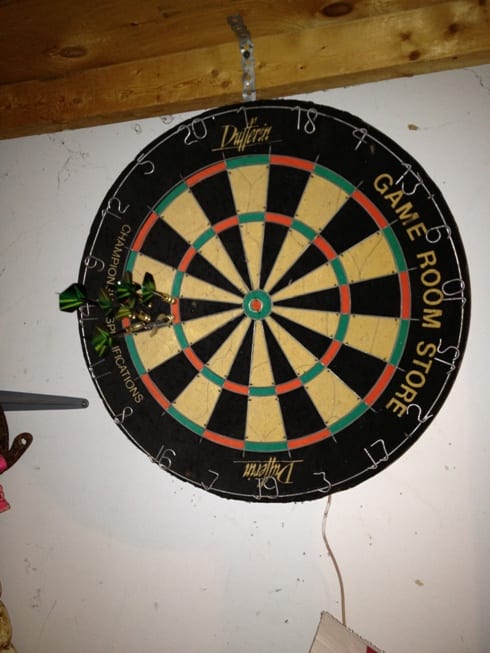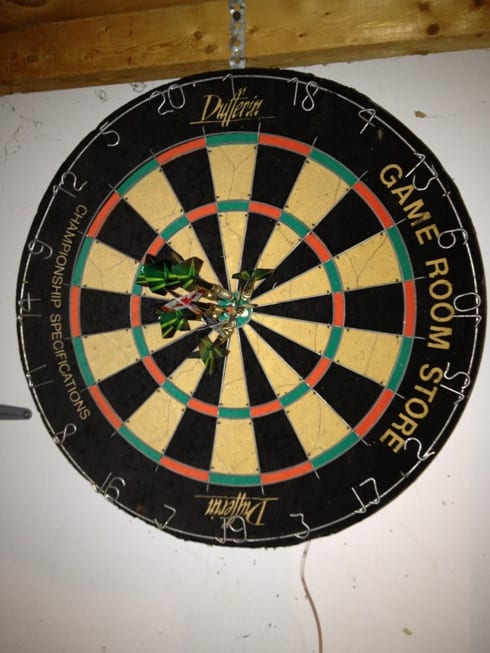Warning: Trying to access array offset on value of type bool in /home/azzphih/templatestaff/wp-content/themes/mh-magazine/includes/mh-custom-functions.php on line 396
Deprecated: ltrim(): Passing null to parameter #1 ($string) of type string is deprecated in /home/azzphih/templatestaff/wp-includes/formatting.php on line 4476
I thought it was time to break out a little update on Measurement System Analysis (MSA for short) for those of you just learning it. I can fully understand how frustrating this is because MSA is one of the toughest topics for both green belts and black belts in the Six Sigma curriculum. For black belts, I’ll talk later about capability, DOE*, and RSM*, which can be just as daunting.
Measurement System Analysis in a nutshell is the method to determine the variation in a process. Total Measured Variation = True Process Variation + Measurement System Variation
If you were talking to your grandmother, how would you explain what MSA is? One of the ways I explain this to my teenage sons goes, “son, if you were measure the distance between here and the next town, would you use a ruler or would you use the odometer in the car? Likewise, if you were to measure the distance between your bedroom and the bathroom would you use the odometer in the car or would you use a tape measure?” This is called resolution and discrimination. A good MSA must ensure that the resolution or means of measuring is appropriate. Once you know you have the correct measuring apparatus, then you’ve got to determine what you want to measure.
So You Think You Know a Thing or Two About Measurement System Analysis?
Sure, you’ve got to learn the usual myriad of buzzwords that are required for this such as Repeats (Runs), Randomization, and Replication but if you were learning a music instrument you’d be stuck learning about chords, scales, modes, arpeggios, etc. Or if you were learning to drive you’d need to learn about handling the car, road signs, road courtesy, etc.
Also, one of the obstacles the six sigma student must overcome is realizing that most six sigma training involves the use of continuous data and Gage R&R (crossed) studies when much (if not most) of your data is not continuous, but attribute like the number of defects per unit or number of defective units.
What I have simplified by no means replaces any Six Sigma (green belt or black belt) course, which usually consists of about 100 PowerPoint slides but I aim to provide a simple study aid. My first MBB always told me to stay as high as possible as long as possible and you he didn’t mean this in the Cheech & Chong sense but rather to take whatever problem and to break it down as much as possible to its most basic form.
Important components of MSA include methods for determining the accuracy and precision of a process or measurement system. Additional measures or KPIs in any Measurement System Analysis are linearity, accuracy/bias, precision, and stability.
Key takeaways around ACCURACY:
Bias – a little to the left or a little to the right, a little over or a little under. Your MSA should help you determine the bias.
Key takeways around PRECISION
Repeatability – The variation observed when the same operator measure the same part under the same conditions (same shop-floor,same machine, etc.)
Reproducibility – The variation observed when different operators measure the same part under the same conditions (same shop-floor, same machine, etc.)
In trying to come to terms with Gage R&R studies I suggest the following ideas that you can develop your own MSA. By all means make up the data in Microsoft Excel first, get comfortable with it, then import it to Minitab. Change the data and see what the effects are. Most examples I’ve seen in various MSA courses focus largely around call center and airline reservation examples. Here are some ideas to develop your own MSA and hopefully give you another vantage point.
Perform an MSA (attribute) for the number of dead pixels on LCD monitors
Imagine working at the Samsung or LG factory and you are responsible for final quality control and one of the main criteria for accepting or rejecting monitors is the number of dead pixels. Don’t forget to determine the number of acceptable dead pixels per square inch, etc.
Perform an MSA (attribute) to determine how effective are the new windshield wipers on your car
- Here you can have a lot of fun coming up with ideas of the number of streaks (make something up) or drops after the wipers have done their job in a drizzle or a hard rain fall.
- Have other drivers (read operators) determine the efficacy of different types of wipers
Peform an Measurement System Analysis (continuous) to check for average temperatures in the caribbean during February over the past three years
- Are the weather trends the same for different weather sites?
Perform a Measurement System Analysis (continuous) on the fuel consumption on your two cars (the family van and the family compact)
- You and your spouse can be operator 1 and operator 2
- Each car can be a part number
- Figure out how to measure the fuel economy
For further reading, I recommend checking the excellent help files in Minitab as well as the various method chooser pdf documents. The following decision tree has many a time brought me back from the ledge when determining the various metrics different MSA studies with continuous and attribute data. Please drop me a line if you have any additional questions.




Notes:
Randomization is:
- Test or measurement runs are made in an arbitrary vs patterned order
- Averages out effects of noise or other unknown factors
- Tradeoff – Invalid results versus inconvenience (though the course materials always say, “if any”, you know there always is)
Repeats are
- Running more than one sample of a single run
- Where the results are averaged
Replication is
- Running the entire experiment or measurement run in a time sequence (over a shift, days, or weeks)
- A good MSA allows for repeatability studies
Other Terms:
DOE – Design of Experiments
MBB – Master Black Belt
RSM – Response Surface Methodology
Used with permission by sixsigmaz.com


Be the first to comment